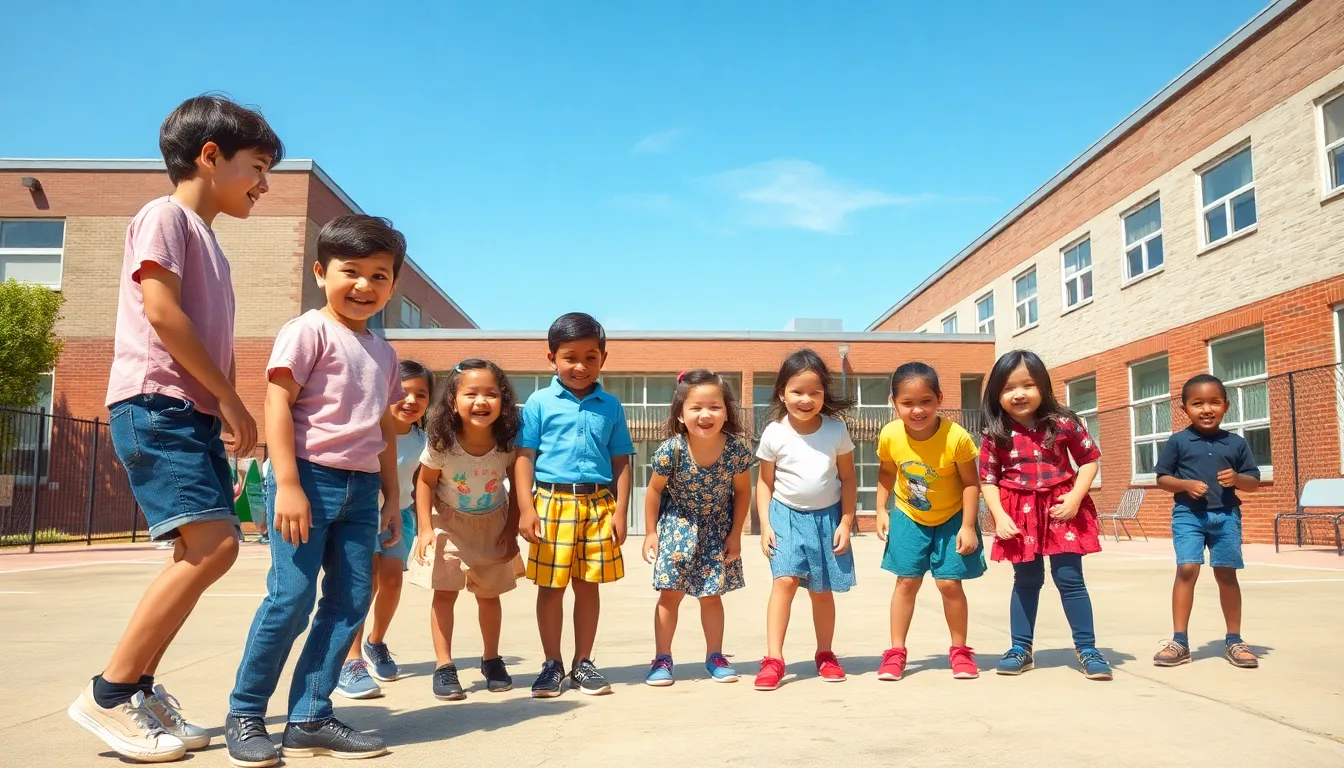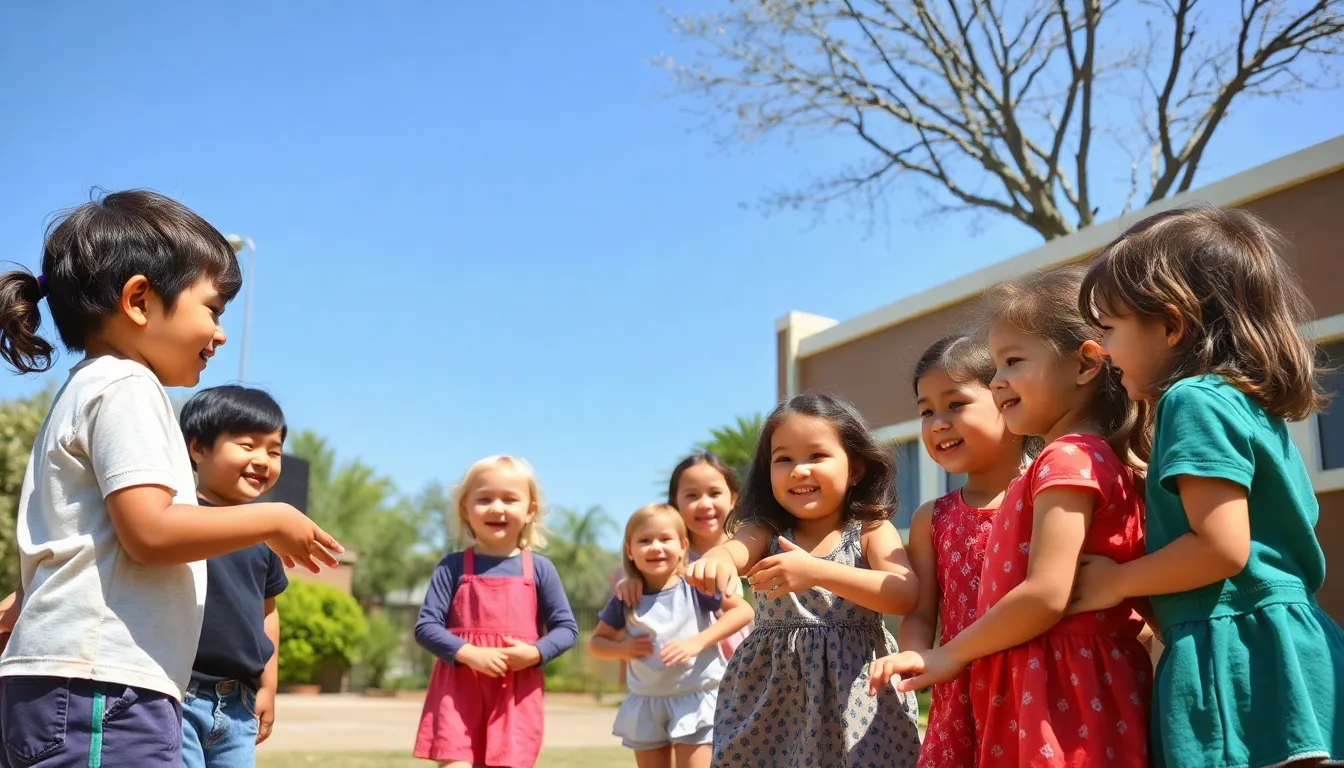Table of Contents
ToggleBullying isn’t just a playground problem; it’s a serious issue that can follow kids into adulthood. Imagine a world where kindness is the norm and everyone feels safe to express themselves. Sounds dreamy, right? Well, it’s time to wake up and make that dream a reality.
Preventing bullying isn’t just about stopping the mean kids; it’s about creating a culture of respect and empathy. With the right strategies, schools and communities can transform into safe havens where everyone thrives. So buckle up, because this journey towards bullying prevention is about to get real—and maybe a little funny too. After all, who said tackling tough topics can’t come with a smile?
Understanding Bullying
Bullying represents a significant concern, affecting individuals at every age. Recognizing its various forms and definitions aids in fostering a supportive environment.
Definition of Bullying
Bullying involves repeated aggressive behavior intended to harm others, whether physically, emotionally, or socially. It can manifest through intimidation, harassment, or manipulation. This behavior occurs in different settings, including schools, workplaces, and online. Individuals who experience bullying often face long-term psychological effects, making a comprehensive understanding essential for prevention efforts. Organizations and schools must prioritize awareness and education to combat this pervasive issue effectively.
Types of Bullying
Several types of bullying exist, each with distinct characteristics. Physical bullying involves direct harm, such as hitting or pushing. Verbal bullying includes name-calling, threats, or derogatory comments that undermine someone’s confidence. Social bullying aims to damage a person’s reputation or relationships, often involving exclusion or rumor-spreading. Cyberbullying occurs through digital platforms, allowing bullies to target victims anonymously. Awareness of these types enables proactive measures to address bullying in various environments.
Importance of Bullying Prevention


Preventing bullying holds critical importance for individuals and communities. It fosters a safe and supportive environment for all.
Impact on Victims
Experiencing bullying can lead to severe psychological effects for victims. Anxiety, depression, and low self-esteem often develop among those targeted. Long-term consequences might include difficulty forming relationships and persistent emotional distress. Victims frequently struggle academically, with some even avoiding school altogether. Studies indicate that bullied individuals are more likely to experience mental health challenges in adulthood. Addressing these issues early on through prevention can significantly reduce their impact.
Effects on Schools and Communities
Schools and communities face numerous challenges due to bullying. Academic performance often declines when students feel unsafe or targeted. Teacher satisfaction and retention may decrease as a result, leading to higher turnover rates. Communities also deal with increased disciplinary issues and a toxic atmosphere. A positive environment encourages engagement and collaboration among students, teachers, and parents. Prioritizing bullying prevention directly contributes to a thriving community and enhances overall well-being for everyone involved.
Effective Strategies for Bullying Prevention
Effective bullying prevention requires a comprehensive approach involving schools, families, and communities. Implementing targeted strategies can foster a safe and supportive environment for all.
School-Based Programs
School-based programs play a vital role in combating bullying. These initiatives include anti-bullying policies, training for staff, and creating awareness campaigns. Students benefit from lessons that promote empathy and conflict resolution. Participation in peer mentoring programs encourages positive behavior among students. Regular assemblies and workshops can reinforce the importance of kindness and respect. The effectiveness of these programs often reflects in improved school climate and reduced bullying incidents.
Community Involvement
Community involvement enhances bullying prevention efforts significantly. Local organizations, businesses, and parents can collaborate to create safe spaces for youth. Programs like community workshops offer resources and training to recognize and combat bullying. Engaging youth in community service initiatives fosters empathy and builds resilience. Parents and guardians should participate in discussions on bullying and its effects. Together, communities can create a unified front against bullying, promoting a culture of support and resilience across neighborhoods and schools.
Role of Parents in Bullying Prevention
Parents play a crucial role in preventing bullying. They can influence their children’s behavior and attitudes towards others, fostering a respectful environment at home.
Open Communication
Open lines of communication help children express their feelings and concerns. Parents should encourage discussions about their day-to-day experiences, including relationships with peers. Questions about school and friendships can spark meaningful conversations. If a child shares distressing experiences, parents need to listen attentively, validating their feelings. Encouraging honesty builds trust, making it easier for children to talk about bullying when it occurs. Regular family meetings can also create opportunities for discussing challenges and brainstorming effective solutions.
Monitoring Behavior
Monitoring children’s behavior offers insights into potential bullying issues. Parents should observe their children’s interactions with peers both at home and online. Setting rules around social media use can reduce exposure to cyberbullying. Encouraging responsible online behavior enhances their ability to navigate digital interactions. Checking in on their emotions and reactions can reveal underlying issues. If changes in mood or behavior appear, parents should investigate further. By maintaining awareness, parents can intervene early, addressing any bullying situations effectively.




